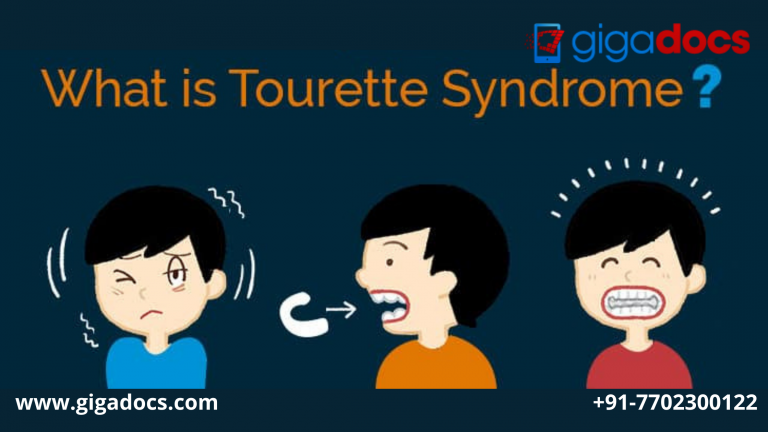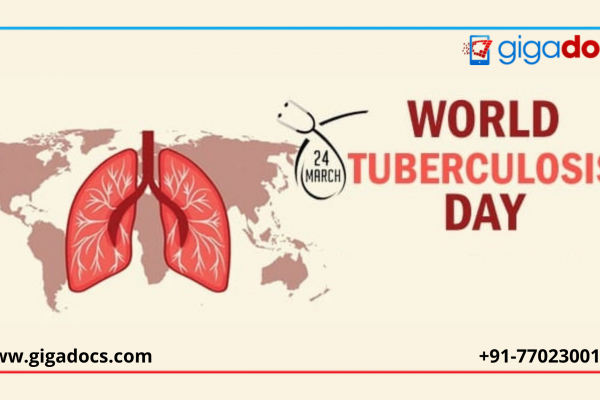Tourette Syndrome affects one out of every hundred school-aged children. Among them, Tourette is more seen among boys than in girls. Tourette has no cure at present.
Tourette syndrome (TS) is a neurological condition characterized by tics: sudden, repetitive, quick, and unpleasant movements or vocal noises that come and go, altering in form, frequency, location, and severity over time. The initial signs and symptoms typically appear between the ages of 5 and 10 years, primarily in the head and neck area, but can also affect the child’s trunk, limbs, and legs.
By the late teens or early twenties, Tourette tics usually lessen and get under control. However, they can progress to be a lifelong illness for some people, with symptoms lasting well beyond adulthood. However, those whose symptoms do not interfere with everyday life may even stop using medication to control their tics. As a result, their tics might worsen as an adult in some instances. Nevertheless, Tourette syndrome is not a degenerative condition, and individuals can expect to lead a normal life.
7th June is International Tourette Syndrome (TS)Awareness Day, and we are approaching the middle of the Tourette Disease Awareness month (15 May to 15 June). This week witnesses people worldwide gather together to raise awareness for Tourette Syndrome (TS), a deterring growth syndrome mainly observed in children.
Types of Tourette Tics
Tics can be either motor (motor tics) or auditory (vocal tics). The beginning of motor tics typically precedes the onset of verbal tics.
The Main Symptoms of Tourette Syndrome (TS), Persistent (Chronic) Motor or Vocal Tic Disorder, and Provisional Tic Disorder include-
- Involuntary movements
- Repeated Vocalisations
The child will probably feel an itch, tickle, or stress before experiencing motor or verbal tics. Some patients with Tourette syndrome can briefly even stop or hold back a tic with a tremendous effort.
Do you know?
- Motor tics typically emerge before vocal tics, and basic tics frequently precede complicated tics.
- Tics vary in type, frequency, and severity and might worsen if you’re ill, stressed, anxious, tired, or excited.
The table below explains what are the simple and complex tics observed among people-
| Simple Tics | Complex Tics |
| Head Jerking | Touching or Smelling Objects |
| Shoulder Shrugging | Repeating Observed Moments |
| Eye Darting | Stepping in a certain pattern |
| Nose Twitching | Bending or Twisting |
| Mouth Movements | Hopping |
| Grunting | Repeating one’s own phases or Words |
| Coughing | |
| Throat Clearing |
Causes of Tourette Tics
There is no known explanation for the causes that are behind Tourette syndrome. It’s a complex medical condition that’s likely caused by a combination of hereditary and environmental conditions.
Neurotransmitters, including dopamine and serotonin, that convey nerve impulses might have a role to play.
Risk factors for Tourette Tics
Risk factors for Tourette syndrome include:
- You may be more likely to get Tourette syndrome if you have a family history of Tic disorders.
- Tourette syndrome is three to four times more common in men than in women.
Tourette Tics Triggers
Tics get worsened by excitement or anxiety and better when the person is calm. Tics can be triggered or worsened by certain physical happenings, like tight collars can cause neck tics. Similar sounds may be triggered by hearing another individual sniff or clear their throat. Tics do not go away however, get considerably reduced during light sleep and disappear entirely while in a deep sleep.
Although Tourette’s symptoms are involuntary, some people can suppress or otherwise regulate their tics to reduce their burden on their daily lives. On the other hand, they might frequently report a significant increase in tension when repressing their tics, to the point where they feel compelled to express the tic against their will.
Disorders Associated with Tourette
Co-occurring neurobehavioral disorders (how the brain impacts emotion, behavior, and learning) are common in people with TS, and they typically cause more damage than the tics themselves. Although most people with TS have a slight improvement in motor and vocal tics in late adolescence and early adulthood, the neurobehavioral symptoms might last well into their later years.
The most common co-occurring conditions include:
- Attention Deficit Hyperactivity Disorder (ADHD)- Causes problems with focus, hyperactivity, and impulsivity.
- Obsessive-Compulsive Disorder or Activities (OCD/OCB)- They are unwanted, repeating thoughts, ideas, or feelings (obsessions) that cause a person to feel compelled to repeat or execute behaviors in a specific way (compulsions). For Example, Handwashing, checking things, and cleaning are examples of repetitive habits that can significantly disrupt daily living.
- Anxiety Disorder- Feeling of apprehension, fear, and unease.
- Learning disabilities- They include reading, writing, and arithmetic difficulties that are unrelated to the IQ levels of the individual.
- Having difficulty falling or staying asleep.
- Skill impairments- Problems observed with social skills like establishing social relationships and social skills impairments.
- Sensory processing troubles- This includes trouble organizing and responding to sensory information from touch, taste, smell, sounds, or movement.
Complications of Tourette Tics
Tourette syndrome is commonly associated with behavioral and social difficulties that can negatively impact your self-esteem. The following are some of the conditions that are frequently linked to Tourette syndrome:
- Attention deficit hyperactivity disorder (ADHD)
- Obsessive-compulsive disorder (OCD)
- ASD (autism spectrum disease)
- Disabilities in studying
- Sleep disturbances
- Depression and anxiety
- Tic-related pain, particularly headaches
- Problems with anger management
Tourette Tics Diagnosis with Gigadocs
A formal diagnosis of Tourette Tics may take some time to come. Families and doctors who are unaware of the disorder may believe that mild or moderate tic symptoms are minor or insignificant, that they are part of a child’s developmental stage, or that they result from some other problem. Some parents, for example, may believe that eye blinking indicates eyesight troubles or that sniffing signals seasonal allergies. Clinicians frequently diagnose common tics. However, atypical symptoms (those that deviate from common symptoms) or atypical presentations (symptoms that emerge in maturity, for example) may require a specialized diagnosis. For an accurate diagnosis, a doctor looks for the following symptoms:
- For at least a year, both motor and vocal tics occurring several times a day, every day, or intermittently.
- Tics onset before the patient has turned 18yrs.
- Tics that are not triggered by medicines, other substances, or medical disorders.
No blood, laboratory, or imaging tests are required for a Tourette tic diagnosis. However, neuroimaging procedures, such as magnetic resonance imaging (MRI) or computed tomography (CT), electroencephalogram (EEG) examinations, or specific blood tests, may be performed in rare circumstances.
If you have noticed your child with any of the signs discussed above, you must consult a child pediatrician for an initial diagnosis. Download the Gigadocs app and teleconsult the best pediatricians for your child from your home at your convenient time. In addition, Gigadocs give you the ease of storing your child’s medical records and prescriptions securely online so that you can refer to them when you reach out to a pediatric neurologist for a more accurate diagnosis.
Download the Gigadocs app and register for free for complete health management of your family-
- IOS App – apple.co/2W2iG4V
- Android App – bit.ly/33AQoRC
To know more and schedule a Virtual Consultation demo, Email @ info@gigadocs.com.




